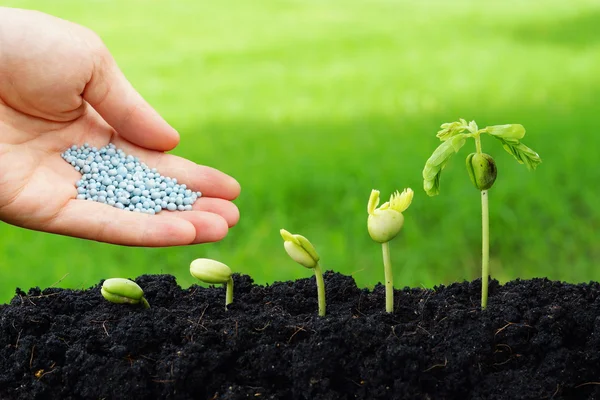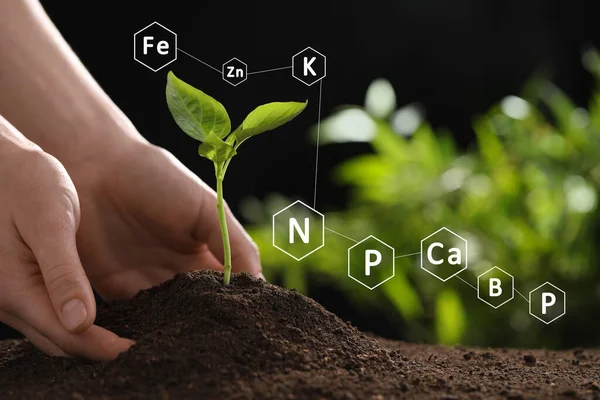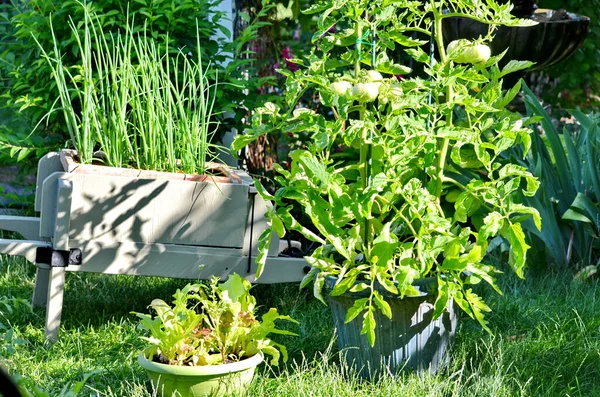Have you ever wondered why some plants seem to thrive, while others struggle no matter how much you water or care for them? The secret might be in how well they’re “eating.” Yes, plants need food too, and not just water or sunlight! Just like humans need a balanced diet to stay healthy, your garden also relies on proper plant nutrition to grow strong and yield beautiful flowers, fruits, or veggies
In this post, we’re diving into the basics of plant nutrition. You’ll learn what nutrients your plants need, how they absorb them, and the signs to watch out for if your plants aren’t getting enough of their essential “food.” Plus, we’ll share some easy tips (and affiliate links!) to help you provide the best nutrition for your garden.
1. What Is Plant Nutrition?
Plant nutrition refers to the process by which plants take in and use the nutrients they need to grow and stay healthy. Plants absorb nutrients from the soil (or the growing medium, if you’re using containers) through their roots and also capture some essential nutrients from the air through their leaves.
Just like your body needs vitamins and minerals to function, plants need a variety of nutrients to grow well, fight off diseases, and produce flowers, fruits, and vegetables. These nutrients fall into two categories: macronutrients and micronutrients.
2. Macronutrients: The Big Three
Macronutrients are the nutrients that plants need in larger quantities. The “big three” macronutrients are nitrogen (N), phosphorus (P), and potassium (K), which you might recognize as NPK, often listed on fertilizer packaging. Let’s break them down:
Related: Best Fertilizer Application Rates per Crop in Kenya
a. Nitrogen (N)
Nitrogen is crucial for leafy growth. It helps plants develop strong, lush foliage, which is especially important for leafy vegetables like spinach, lettuce, or herbs. If your plants are looking pale or yellow, especially in the lower leaves, they could be lacking nitrogen.
Nitrogen-rich fertilizers (affiliate link): Looking for a boost of nitrogen? This organic fertilizer can help bring your garden back to life!
b. Phosphorus (P)
Phosphorus is essential for strong root development and flower production. Without enough phosphorus, your plants might have weak roots, poor flowering, or fail to produce fruits. This nutrient is especially important for flowering plants, fruit trees, and root vegetables like carrots and potatoes.
Phosphorus-rich fertilizers: Boost your flowers and roots with this phosphorus-packed fertilizer.
c. Potassium (K): The Plant Protector
Potassium helps plants fight off disease, regulate water balance, and develop strong stems. It’s especially important for plants that bear fruit, like tomatoes or cucumbers. If your plants are showing weak growth, curling leaves, or have trouble producing fruits, they may need more potassium.
Potassium-rich fertilizers: Protect your plants with this potassium supplement designed for fruit-bearing plants.
3. Micronutrients: The Little Helpers
While macronutrients are needed in large amounts, plants also require smaller quantities of micronutrients. These nutrients include:
- Calcium (Ca) – Strengthens cell walls and helps plants resist diseases.
- Magnesium (Mg) – Vital for photosynthesis, the process where plants turn sunlight into energy.
- Sulfur (S) – Helps in protein production and overall plant metabolism.
- Iron (Fe) – Essential for chlorophyll production, which gives plants their green color.
- Zinc (Zn), Boron (B), Manganese (Mn) – Help with various plant growth processes, from root development to flower production.
Even though plants need only small amounts of micronutrients, they’re still crucial for healthy growth. A deficiency in any of these can lead to stunted growth or poor yields.
Micronutrient solutions (affiliate link): Get a balanced micronutrient mix to keep your plants in top shape with this product.
4. How Plants Absorb Nutrients
Plants take in most of their nutrients through their roots, but the process isn’t as simple as sucking up water. Nutrients must be dissolved in water, creating a nutrient solution that plants can absorb through their roots. This is why keeping the soil properly watered and having good soil health is essential (refer to our earlier post on soil health!).
Once inside the plant, nutrients move through a vascular system that works similarly to our bloodstream. They’re transported to where they’re needed for various functions, like photosynthesis, growth, or fruit production.
5. The Importance of Soil Health in Plant Nutrition
Remember, your soil is like a pantry stocked with the nutrients that plants need to thrive. If your soil is nutrient-poor, your plants won’t have access to the vital nutrients they require, no matter how much you water or tend to them. This is where fertilizers, compost, and other soil amendments come into play.
To maintain healthy soil, it’s important to regularly test your soil (you can find DIY soil test kits online) to ensure it contains the right balance of nutrients. If your soil lacks a particular nutrient, you can add it back using a targeted fertilizer or organic amendment.
DIY Soil Testing Kit: Keep track of your soil’s health with this easy-to-use soil testing kit that checks for NPK levels and pH balance.
6. When Should You Fertilize?

Fertilizing your garden isn’t a one-size-fits-all task. Different plants have different nutrient needs, and timing is important too. Here’s a simple guide to follow:
a. Before Planting
Before you even plant your seeds or seedlings, it’s a good idea to work some compost or an all-purpose fertilizer into the soil. This provides a healthy foundation of nutrients for your plants to start with.
b. During the Growing Season
Throughout the growing season, you can add additional fertilizer based on what your plants need. For example, leafy greens like lettuce or kale may benefit from extra nitrogen during growth, while flowering or fruiting plants like tomatoes may need more phosphorus or potassium as they develop.
c. After Harvest
Don’t forget to replenish your soil after you’ve harvested your crops. Adding compost or mulch can help restore the nutrients that your plants used up during the growing season, setting the stage for your next planting.
Compost bin options: Turn your kitchen waste into plant food with this compost bin, perfect for home gardeners.
7. Signs of Nutrient Deficiencies
Sometimes, it’s easy to tell if your plants are lacking a specific nutrient just by looking at them. Here are some common signs of nutrient deficiencies:
- Yellowing leaves: Could indicate a nitrogen deficiency.
- Purplish leaves or stunted growth: Often a sign of phosphorus deficiency.
- Brown leaf edges: Might suggest a potassium deficiency.
- Yellowing between leaf veins: A common sign of magnesium deficiency.
- Slow growth and weak stems: Could mean a lack of calcium.
If you spot any of these symptoms, it’s a good idea to test your soil to confirm which nutrient is missing and then use a targeted fertilizer to address the issue.
8. Organic vs. Synthetic Fertilizers: Which Is Best?
When it comes to plant nutrition, you have two main options for fertilizers: organic or synthetic.
- Organic fertilizers are made from natural sources like compost, manure, or bone meal. They improve soil health over time and release nutrients slowly, making them a great choice for long-term soil improvement.
- Synthetic fertilizers are manufactured and contain concentrated amounts of nutrients. They provide quick results and are useful if your plants need an immediate nutrient boost, but they don’t improve soil health in the long run.
Both types of fertilizers can be effective, depending on your garden’s needs. If you’re looking to garden more sustainably, organic fertilizers are usually the better option.
Related: Which are the Best Types of Fertilizers in Kenya
Best organic fertilizers (affiliate link): Try these top-rated organic fertilizers for a healthier, more sustainable garden.
Conclusion: Feed Your Plants, Feed Your Garden
Understanding plant nutrition is key to growing a successful garden. By providing your plants with the right balance of macronutrients and micronutrients, and regularly testing and improving your soil, you’ll set your garden up for success.
Whether you choose to go the organic route or use synthetic fertilizers, the most important thing is to pay attention to your plants and give them the nutrients they need at the right time. A well-fed garden is a happy garden, and that means healthier plants, bigger yields, and more satisfaction for you as a gardener.



